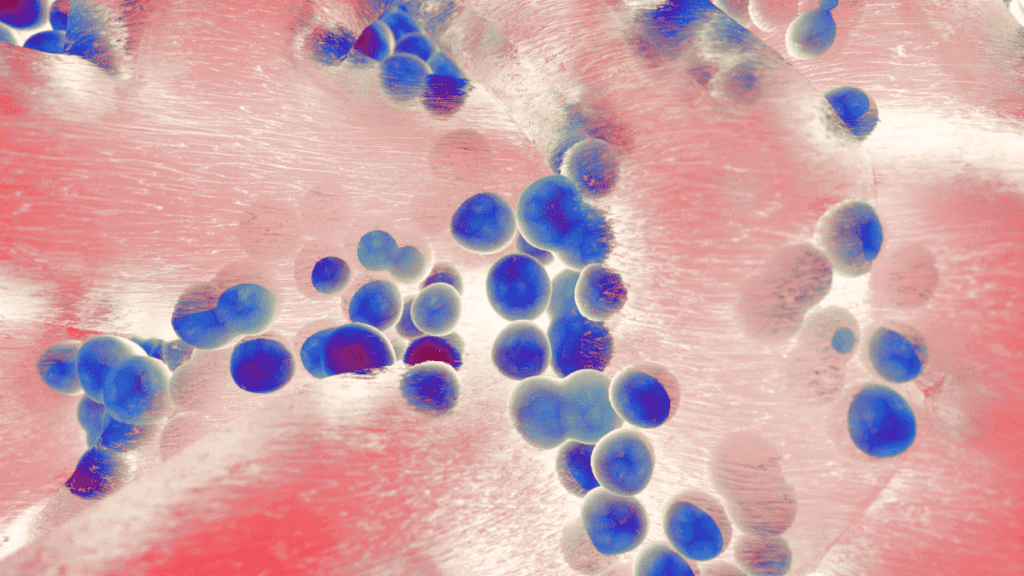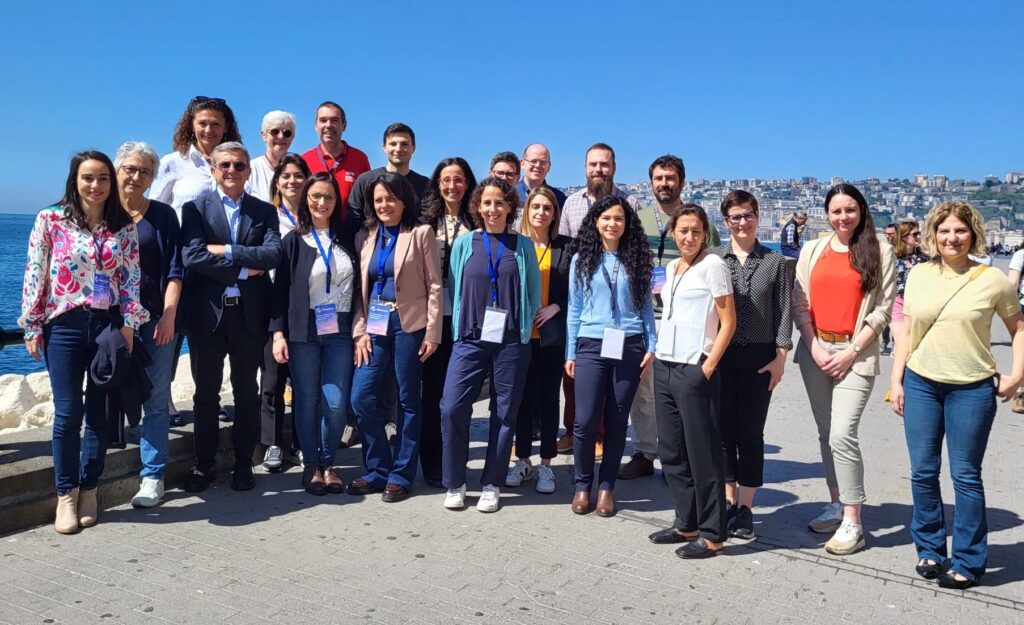Bioaction is an EU-funded project, in which IBEC is involved, that aims to revolutionize the approach to implant-associated infections. By harnessing hydrogels and smart nanomaterials, Bioaction will transform bacterial biofilms into bio-factories for tissue regeneration, offering a novel alternative to traditional antibiotic therapies. The project is driven by a multidisciplinary team of experts and strives to improve patient outcomes while addressing the global challenge of antimicrobial resistance.

The battle against infections and microbial resistance presents an ever-pressing challenge in the field of healthcare. Implant-associated infections, for example, increase the risk of device rejection, compromising patient health and contributing to the growing problem of antimicrobial resistance. Standard treatments, including prolonged antibiotic regimens, often prove futile against these resilient bacterial communities, exacerbating the issue.
In this scenario, Bioaction takes a bold and innovative stance, departing from traditional approaches: rather than combating pathogenic bacteria head-on, Bioaction leverages them as valuable allies in promoting tissue regeneration for better implant integration. This novel perspective offers a paradigm shift in addressing infections.
The Bioaction project, backed by a generous EUR 3.4 million in funding, has garnered vital support from the European Innovation Council’s Pathfinder Open program, known for its commitment to fostering groundbreaking innovations that push the boundaries of scientific exploration and technological advancement.
Over the next four years, the project will develop functional bio-hydrogels capable of triggering local remodeling of physiological processes to accelerate healing and stimulate bone growth. They will be designed as injectable materials or implant coatings for minimally invasive delivery.
Within the project, researchers will actively validate the technology using clinically relevant models for dental implants and permanent transcutaneous prostheses. However, the transformative impact of Bioaction extends far beyond these specific cases. By reducing reliance on extended antibiotic therapies and mitigating failure rates, this pioneering project holds the power to revolutionize infection treatment methods. In the long run, Bioaction strives to enhance patients’ quality of life while making significant contributions to the worldwide battle against antimicrobial resistance.
According to Luigi Ambrosio, project coordinator at Institute of Polymers, Composites, and Biomaterials – National Research Council (CNR), “the Bioaction project proposes a visionary approach that will be pursued thanks to real interdisciplinarity. Our partners’ diverse expertise and skills in synthetic biology, biomaterials, microbiology, and beyond will surely be the basis for the project’s success.”

The IBEC research group for Biomaterials in Regenerative Therapies, led by Elisabeth Engel, is actively participating in the Bioaction project. Their primary focus is on the mechanical characterization of injectable hydrogels and conducting studies on in vitro dynamics and biofilm stability.
Apart from IBEC, the project collaborates with three other research centers, the Institute for Polymers, Composites and Biomaterials, the Institute for Biological Systems from CNR, and the AO Research Institute Davos, as well as two universities, the University of Liège and the University of Eastern Piedmont, and two companies, Ferentis and INsociety, from a total of five European countries. All the partners participated in the Bioaction’s kick-off meeting hosted by the coordinator in Naples on 26 April 2023.
Through this collaborative effort, Bioaction stands at the forefront of innovation, poised to reshape the landscape of infection treatment and tissue regeneration to improve the quality of life for patients worldwide.
For more information about the Bioaction project, please visit bioaction.eu
This project has received funding from the European Union's HORIZON EIC 2022 PATHFINDEROPEN programme, under grant agreement No 101098972.





